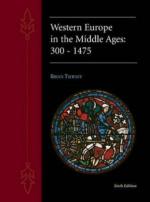|
This section contains 1,966 words (approx. 7 pages at 300 words per page) |

|
Throughout the Middle Ages, illiteracy was rampant and writing materials were rare. Without the availability of paper and the printing press, written matter had to be copied by hand onto parchment derived mostly from animal skins (usually goat, sheep, and calf). Given this scarcity of resources and lack of technology, literature dealing with the peasantry of Europe was severely limited and, in some areas, nonexistent. Among medieval writers, the lower classes were not considered worth the cost or effort involved in writing. By the fourteenth century, however, the impoverished state of Europe's peasants became the object of many sympathetic writers. William Langland was one such author. Langland's allegorical poem, The Vision of Piers Plowman, voiced a strong protest against the sufferings of England's peasants. One modern historian, Christopher Dawson, called it "not only the first authentic voice of...
|
This section contains 1,966 words (approx. 7 pages at 300 words per page) |

|




